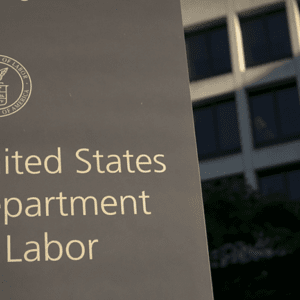U.S. financial advisors will now be required to put their clients’ best interests before their own profits. This new law is known as the Department of Labor’s (DOL’s) fiduciary rule or standard. FINRA is now holding this standard.
Prior to this rule, financial advisors were not required to put their clients’ financial interests first. They could recommend expensive financial products that were not in the clients best interest. It is estimated that such conflicts of interest cost Americans $17 billion a year. The DOL estimates that these changes could save affected investors tens of thousands of dollars in retirement savings. According to Harold Evensky, the DOL rule should make the system fairer. However, there is criticism, including one U.S. Senator who has referred to this new rule as Obamacare for retirement planning.
Why is the new Fiduciary Rule important?
Table of Contents
Under the current suitability standard, the responsibility for proving the claim rests on the client if there is a dispute. Under the fiduciary standard the responsibility shifts to the financial advisor. This is a distinction that will not be lost on compliance departments, according to Mr. Evensky. Keep in mind that while IRAs may be subject to the new fiduciary standard, the old suitability standard (as well as potential conflicts of interest) will still hold for non-IRA accounts.
Fiduciary Rule financial advisors receive no commission
The Fiduciary Rule is a federal law that requires financial advisors to act in clients’ best interests at all times. Specifically, it requires advisors to disclose any conflicts of interest, inform clients of their rights, and earn reasonable compensation. It also requires advisor firms to adopt policies to ensure unbiased conduct standards and reasonable compensation for their services. The fiduciary rule is implemented by the Department of Labor without the involvement of Congress. However, Congress has the ability to block the rule’s implementation and make changes.
Those who work under the fiduciary standard have to go through a rigorous process to determine the best interests of their clients. Unlike advisors who are only required to comply with a suitability standard, these advisors must discuss their recommendations with clients. They must also regularly monitor client accounts to ensure that they are still meeting their needs.
The Financial Industry Regulatory Authority also requires that fees and commissions be reasonable. Markups exceeding 5% are considered unreasonable and are subject to regulatory scrutiny. Although many advisors work diligently to provide the best advice possible, the aggregate harm that bad advice can do is substantial.
They are held to a higher standard of care
With the recent Fiduciary Rule, financial advisors are now held to a higher standard of care than they were before. This change is a good thing for investors. It reduces costs and improves the performance of your retirement account. However, you will still need to do some legwork to ensure that you are getting the best advice possible.
The fiduciary standard of care that financial advisors must meet is much higher than those required by the Investment Advisers Act of 1940. According to the U.S. Department of Labor, the implementation of the final rule will cost somewhere between $10 billion and $31.5 billion over 10 years. The new rule requires financial advisors to have a high level of education, experience, and knowledge to provide sound financial advice.
The Fiduciary Rule applies to financial advisors in retirement accounts. Generally, advisers are considered fiduciaries if they meet the five-part test. This test applies to both the advice recipient and the plan at issue.
Have you experienced financial losses?
If you have experienced a loss of $100,000.00 or more in any of your accounts and you are concerned that your financial advisor was not focused on your best interests, or may have been subject to one or more conflicts of interest, please contact the securities arbitration and investment litigation lawyers immediately for a free consultation.


